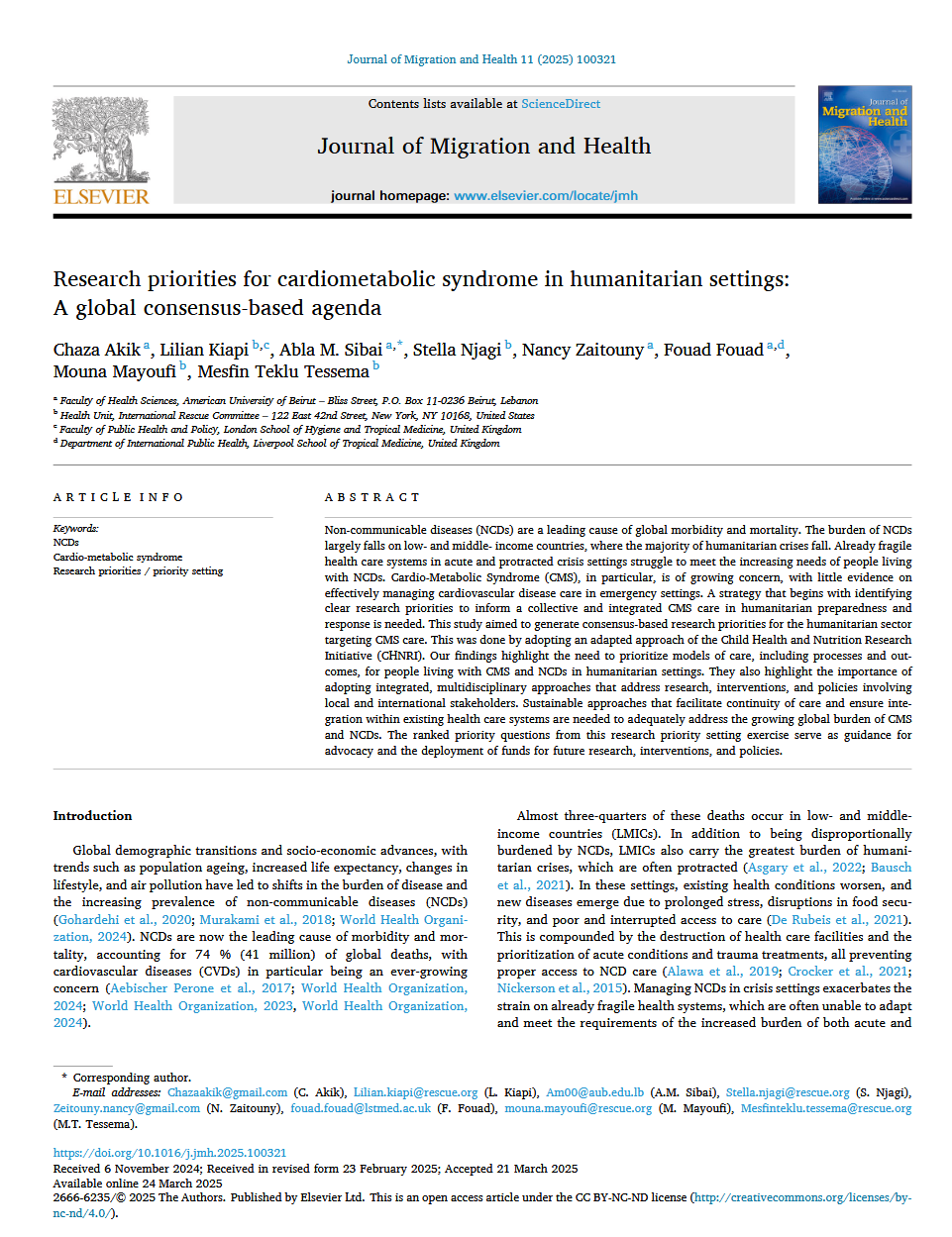WHO Regional Office for the Eastern Mediterranean
Resolution: Palliative care in the Eastern Mediterranean Region: from challenges to solutions ( (EM/RC72/R.4)
Publication
20 Oct 2025
Journal of Migration and Health
24 Mar 2025

Non-communicable diseases (NCDs) are a leading cause of global morbidity and mortality. The burden of NCDs largely falls on low- and middle- income countries, where the majority of humanitarian crises fall. Already fragile health care systems in acute and protracted crisis settings struggle to meet the increasing needs of people living with NCDs. Cardio-Metabolic Syndrome (CMS), in particular, is of growing concern, with little evidence on effectively managing cardiovascular disease care in emergency settings. A strategy that begins with identifying clear research priorities to inform a collective and integrated CMS care in humanitarian preparedness and response is needed. This study aimed to generate consensus-based research priorities for the humanitarian sector targeting CMS care. This was done by adopting an adapted approach of the Child Health and Nutrition Research Initiative (CHNRI). Our findings highlight the need to prioritize models of care, including processes and outcomes, for people living with CMS and NCDs in humanitarian settings. They also highlight the importance of adopting integrated, multidisciplinary approaches that address research, interventions, and policies involving local and international stakeholders. Sustainable approaches that facilitate continuity of care and ensure integration within existing health care systems are needed to adequately address the growing global burden of CMS and NCDs. The ranked priority questions from this research priority setting exercise serve as guidance for advocacy and the deployment of funds for future research, interventions, and policies.